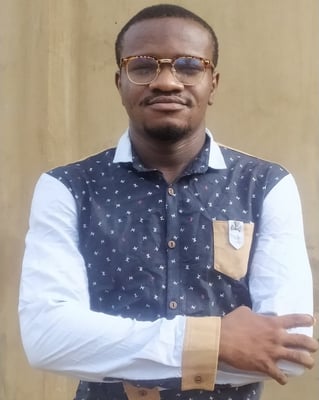The rise of blockchain technology is gradually transforming global industries, including finance, global supply chains, healthcare, fitness and other industries. Can this innovative technology also revolutionize the education sector?
Education is a necessity for any child growing up, but millions of kids lack basic education around the world, especially in developing countries. According to UNICEF’s data in 2019, 115 million children of primary school age are not enrolled in school, and 67 million primary-school-age children are outrightly denied the right to education. And there’s a direct correlation between education and income, showing the need to build better education systems to increase literacy levels in these countries. Reports show that every additional year of education can increase a person’s future income by an average of 10%.
Education for all is one of the UN’s Sustainable Development Goals – SDG4 – ensuring every child and individual has access to inclusive and equitable education by 2030. The current education system in most developing nations is fragmented or expensive, which sets millions aside from good learning institutions.
Luckily, the rise of ed-tech is shaping the future of education and could be the solution to bringing quality education to everyone. During the lockdowns, we saw a rise in the adoption of open education resources and platforms, as well as a rise in e-learning classes. Technology provides a means to deliver educational content, resources, and learning experiences to students who may not have access to traditional schools or qualified teachers. From Coursera to Duolingo, Google Classroom to Udemy, or other online educational resources, technology could be a powerful asset in providing access to quality, affordable education globally.
Enhancing education in developing countries
Blockchain technology, in particular, shows the potential to revolutionize education in developing nations by enhancing digitization, engagement, and collaboration. By leveraging its unique characteristics, blockchain can address various challenges and create new opportunities for educational access and participation. One such platform is TinyTap, a decentralized edtech app offering over 200,000+ online educational content for kids, creating a community of educators, parents and learners, and rewards creators for their content.
Literacy levels have improved over the past decade worldwide, with sub-Saharan Africa leading the growth. At the same time, mobile ownership across the continent has witnessed exponential growth, with 503.14 million smartphone subscriptions in Sub-Saharan Africa in 2021 and expected to close in on 800 million by 2027, data from Statista shows. The growing number of smartphones presents a potential opportunity for apps such as TinyTap to offer worldwide access to online educational courses at a low cost. This aims to boost the participation, attendance and engagement of learners while rewarding the efforts of educators and creators.
Crucially, TinyTap makes learning fun. It is designed for kids aged 2-8 years; hence the content needs to be interesting, captivating and engaging. The platform offers educational games, podcasts, videos, and songs across various subjects, including Math, Language, Science and Nature, Wellness, Social Studies etc. The platform empowers educators and learners through timely access to quality content, low cost of knowledge, and engaging content that improves learning.
Ownership: Giving back power to the individual
One of the biggest flaws of Web 2 Edtech platforms is the authors and content creators not being attributed to their work. To enhance education in developing countries, promoting creators’ and professional educators’ work is crucial.
TinyTap aims to solve this problem by integrating blockchain technology into its platform. The focus is giving learners the best possible education while allowing teachers to own and earn from the gamified content on the blockchain. Educators on the platform can own their content by minting Publisher NFTs and selling them on a subject domain. This allows teachers, parents and educators to earn directly from their content without the need for an intermediary.
Ownership incentivizes educators to create more engaging content for their audiences. Additionally, teachers from developing nations can boost their income streams directly on the platform, allowing them to concentrate fully on teaching younger generations.
Notwithstanding, the problem of lost certificates – a prevalent issue in schools across developing countries – can be easily solved using blockchain technology. Learners can store their certificates and digital badges on the blockchain and earn access passes to additional content. Storing academic certificates on the blockchain allows students to easily share their achievements with companies, universities and other interested parties.
Final words
In summary, by leveraging blockchain technology, developing nations can revolutionize educational access and participation. Transparent educational records, incentivized content creation, digital identities, direct financial transactions, decentralized learning platforms, and enhanced donor transparency collectively contribute to increased attendance and reduced dropout rates among children in these regions.
Through the innovative implementation of blockchain, the path toward a more inclusive and equitable education system becomes clearer, paving the way for a brighter future for children in developing nations.
 Hassan Maishera
Hassan Maishera






